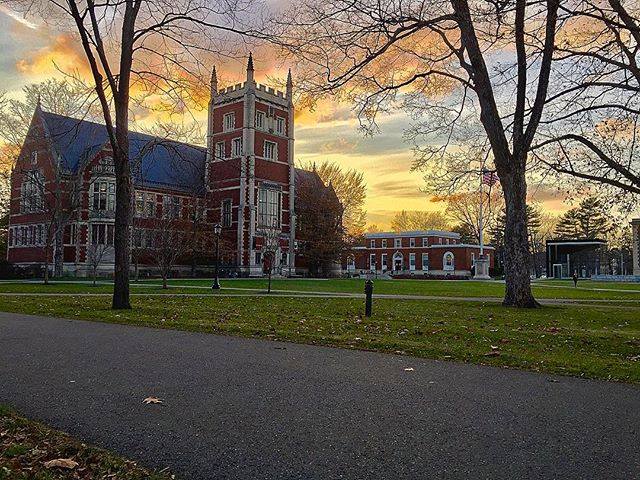On Wednesday night, Amherst College officially presented Steven Chu with an honorary doctoral degree. Students flooded both entrances of Converse Hall’s Cole Assembly room, and Dr. Chu greeted each one as they made their way in.
In 1997, Dr. Chu was awarded the Nobel Prize in Physics for developing laser-cooling methods to trap atoms. He served as Secretary of Energy under President Obama from 2009-2013. Since his time in office, Chu has continued his research at Stanford University as a William R. Kenan Jr. professor of physics and of molecular and cellular physiology.
Chu was originally set to receive the degree last year at the college’s 196th Commencement Ceremony, but was unable to attend after a bike injury. Today, students sat crisscrossed in front of the podium to hear Dr. Chu’s lecture entitled, “Climate Change and Needed Technical Solutions for a Sustainable Future.”
Lisa Rutherford, chief policy officer and general counsel at Amherst College, introduced the honoree by saying, “It’s an extraordinary honor to present you with an honorary degree from Amherst, to congratulate you on your astonishing achievements and to hope that you keep doing what you’re doing.”
After humbly offering a “thank you very much,” Chu promptly began his presentation. Since his time in office, Chu has become renowned worldwide to vocalize efforts towards renewable energy. His studies show that off and onshore windmills, solar, hydraulic and combinations of these energies are not only healthier, but cheaper as well. “Renewable energy costs, at its best sites, cost 2-3 cents per kilowatt hour,” he explained.
Furthermore, Dr. Chu discussed the potential for rapid change. “Right now, electric vehicles worldwide are one percent of new car sales,” Chu stated. “China is pushing for 11 percent of car sales to consist of electric vehicles by 2020.”
During the subsequent Q&A, one young woman attending the lecture expressed her own experiences pertaining to drought with her family in Afghanistan and asked what herself and her peers could do to protect the environment. Chu responded that younger generations in particular hold great influence. From using cloth bags to discussions with parents that have their own political significance, “these are big deals,” Chu said.
Dr. Chu also offered a sense of hope in his studies. “It’s the realization that the world around us will change so rapidly,” Amherst College sophomore Felix Stetsenko, an economics major, commented. “It’s scary, but I’m hopeful for the stuff he was talking about. It makes me optimistic about the future.”
“This is our home. This is where we have to make a stand. This is it,” Dr. Chu concluded. “We have to take care of this planet.”
Nate Proctor can be reached at [email protected].



















